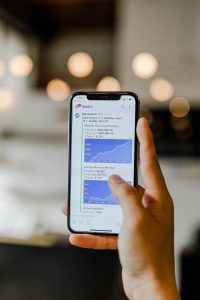Forex, or foreign exchange, is a global market where currencies are bought and sold. The market is decentralized, meaning that it operates 24 hours a day, five days a week, across different time zones and geographical locations. In order for traders to access the forex market, they need to connect to a forex server. But who owns these forex servers, and how do they operate?
Firstly, it’s important to understand that forex servers are not physical entities, but rather software programs that run on computer servers. These servers are owned and operated by forex brokers, which are companies that provide traders with access to the forex market. These brokers act as intermediaries between the traders and the market, executing trades on behalf of their clients.
Forex brokers are regulated by financial authorities in the countries where they operate, and they need to adhere to strict rules and regulations in order to ensure the safety and security of their clients’ funds. This includes keeping their servers up-to-date with the latest security patches and protocols, as well as implementing measures to prevent hacking and other cyber attacks.
In addition to security, forex brokers also need to ensure that their servers are fast and reliable, in order to provide traders with the best possible trading experience. This means investing in high-quality hardware and network infrastructure, as well as optimizing their software programs to minimize latency and improve order execution times.
Many forex brokers also offer different types of trading platforms, which are software applications that allow traders to access the forex market and execute trades. These platforms may be web-based, meaning they run in a web browser, or they may be downloadable applications that run on a trader’s computer or mobile device.
The ownership of forex servers is therefore closely tied to the ownership of forex brokers. As with any business, forex brokers may be owned by individuals, partnerships, or corporations. Some brokers may be publicly traded companies, meaning that their shares are traded on a stock exchange and owned by shareholders.
The ownership of forex servers also varies depending on the type of broker. Some brokers may own and operate their own servers, while others may rent servers from third-party providers. This can be a cost-effective option for smaller brokers, as they don’t need to invest in expensive hardware and infrastructure themselves.
In some cases, forex brokers may also outsource the management of their servers to third-party providers. These providers may specialize in managing forex servers, and they may offer additional services such as server monitoring, maintenance, and technical support.
Overall, the ownership of forex servers is closely tied to the ownership of forex brokers. These brokers are regulated financial institutions that provide traders with access to the global forex market. The ownership of forex servers is therefore an important consideration for traders when choosing a broker, as fast and reliable servers are essential for successful trading.




